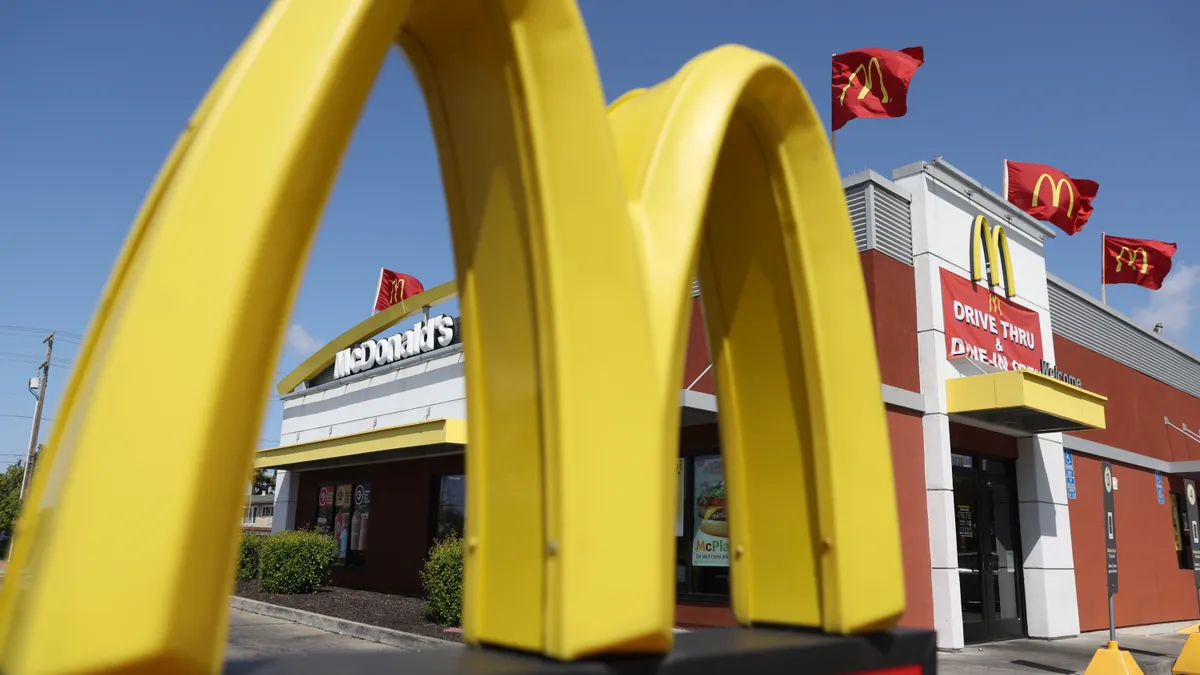Dive Brief:
- Chicago-based McDonald’s freshly appointed CFO — Ian Borden — said on a Thursday earnings call that prices at its restaurants in the U.S. rose just over 10% in the third quarter from the year-earlier period, with roughly the same gains expected in the U.S. for the full year.
-
The higher menu prices helped offset inflation, boost average check size and drive the company’s U.S. comparable sales up more than 6.1% in the quarter from the year earlier while global comp sales increased 9.5%, according to company executives on the call and the company’s third quarter earnings release. Net income in the quarter declined to $1.9 billion from $2.14 billion year-over-year and the company said the quarter’s results were negatively impacted by the weakening of major currencies against the strong U.S. dollar.
-
“One of the things that is a factor in all of this is we give pricing recommendations, but ultimately, it's up to the franchisees as to whether they adopt those pricing recommendations,” Borden said on the call, adding that the company is seeing many franchisees go along with its guidance.
Dive Insight:
McDonald’s price increases come as financial executives across industries have been grappling with setting new strategies for covering their increased expenses without alienating customers. McDonald’s has been working in recent years to develop its pricing process and is “getting that balance right between recovering inflation but also not getting ahead of the consumer,” one executive said on the call.
In addition to the continued inflation pressures from higher commodity, wage and energy costs, the hamburger chain giant said the strong U.S. dollar created a “foreign currency headwind” to the third quarter’s earnings per share of $0.19 and a full year impact of $0.50.
That impact was one of the factors behind the company’s decision to trim its guidance on its capex spending down to $2 billion from the $2 billion to $2.2 million range, Borden said.
There “were kind of two reasons why we adjusted guidance down…one of them is just the stronger U.S. dollar, about 60% of our capital spend is outside of the U.S. So we're just translating that spend back into fewer U.S. dollars,” Borden said. The second, he said, was that there were slightly fewer restaurant openings due to permit time lines in some markets as well as fewer projects getting done.
McDonald’s is just one of many companies that’s been impacted by the strong dollar. In the third quarter earnings season a number of Standard & Poor’s 500 companies have flagged the harm to export revenues from a strong dollar, FactSet said earlier this month.
The quarterly call marks the first for Borden as CFO. The 28-year McDonald’s veteran took the finance reins from outgoing finance chief Kevin Ozan in September. During the call Borden congratulated his predecessor for being a good partner during the transition and hinted that their approaches were similar.
“I expect that you'll find a great deal of consistency between Kevin and myself, particularly when it comes to the financial priorities of our business,” Borden said.














